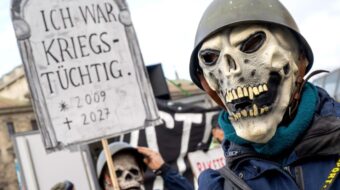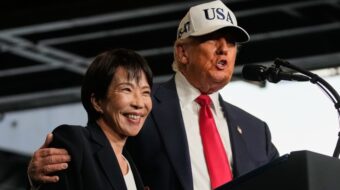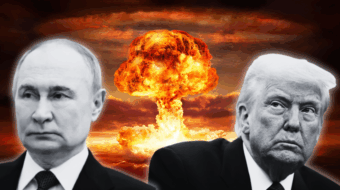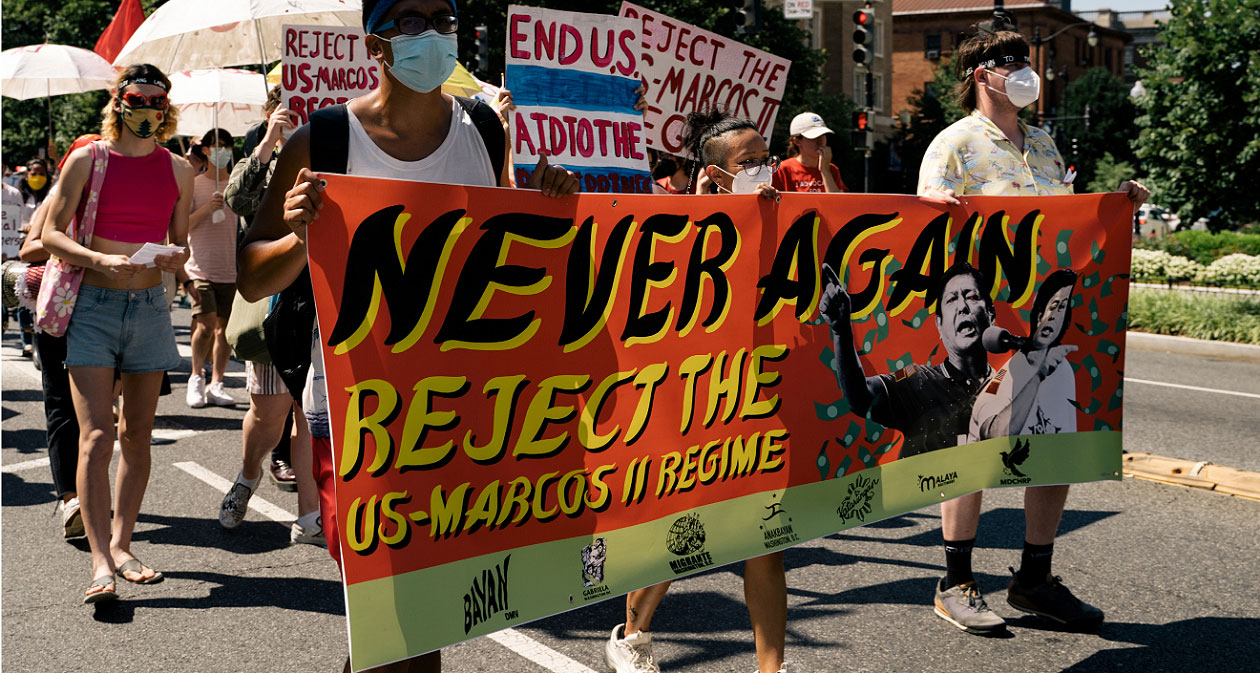
WASHINGTON—On Saturday, July 23, hundreds of Filipino youth activists from all over the D.C. and Baltimore areas came to the nation’s capital to denounce the new Marcos family dynasty regime in the Philippines.
Filipino and Filipino-allied organizations—such as Anakbayan D.C., Migrante Washington D.C., Katarungan D.C., Maryland CHRP, Gabriela D.C., Bayan-USA DMV, and Malaya Baltimore—led the “People’s State of the Nation Address (PSONA).” The PSONA is an annual protest in the Philippines and around the world in response to the official President’s State of the Nation Address. During protests, people take to the streets to expose the president’s lies, talk about the real conditions in the country, and demonstrate the power of the masses of people.
Ferdinand “Bong Bong” Marcos, Jr., the new president of the Philippines and son of former fascist dictator Ferdinand Marcos Sr. (1965–86), presented this year’s State of the Nation Address on Monday, July 25. Marcos, Jr., was elected alongside Sara Duterte, the daughter of the reactionary former President Rodrigo Duterte (2016-22), in May.
The Marcos, Sr., dictatorship stole close to $15 billion USD from the Filipino people, extrajudicially killed more than 3,200 people, tortured and imprisoned tens of thousands more, and instituted policies that led to mass displacement.
The war on drugs policy of the Duterte presidency that just concluded led to the killing of as many as 30,000 people, and featured regular attacks on activists, farmers, Indigenous peoples, lawyers, doctors, media, and other critics of the government. The new Marcos government is expected to continue Duterte’s assault on the people of the Philippines.
“Red tagging”—which targets anyone suspected of being Communists or left-wing sympathizers, much like the McCarthy period in the United States in the 1950s and Hitlerism in Nazi Germany in the 1930s—is another aspect of the government’s repressive repertoire.
This policy led to the attempted assassination by the Philippine military of Brandon Lee, a U.S. citizen, journalist, and environmental advocate living in the Northern Philippines, for his environmental justice work against corporate mining in the region.
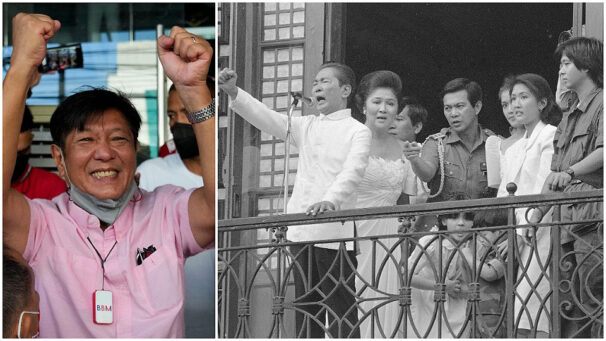
Since the Marcos, Sr., dictatorship’s enactment of martial law in the 1970s, there has been an armed conflict between the New People’s Army (NPA) of the Maoist Communist Party of the Philippines (CPP) and the Philippine government. This ongoing conflict has been used as cover for a wide range of violent state policies over the decades, something that continues to this day.
In 2017, after the dismantlement of the previously agreed ceasefire between the government and the Maoist guerillas, Rodrigo Duterte declared the NPA and CPP to be terrorist organizations. In 2018, Duterte signed an executive order creating the so-called “National Task Force to End Local Communist Armed Conflict,” which led to extrajudicial killings of not only CPP-NPA members but of other people suspected or accused of being communists.
Local Filipino activists in the United States expect these killings and violence to continue under the Marcos II regime.
The United States has long backed political repression in the Philippines, going back to its fight to make it a colonial possession starting at the end of the Spanish-American War in 1898. During this period, when the Philippines was fighting for its sovereignty from Spanish rule, the United States murdered over 200,000 Filipinos in the period from 1898–1902, using tactics like indiscriminate killing, concentration camps for civilians, scorched earth tactics, and other brutal methods to subjugate Filipinos during this military conquest.
The United States continued its colonial domination through forced assimilation in education, outlawing nationalism, establishing U.S. military bases, and more. After the Philippines won independence from the United States in 1946, the U.S. continued its imperialist and neo-colonial subjugation through exploitation of the land and resources of the country and by sending billions of dollars in weapons and aid to the Philippine military and police to suppress people’s movements in the country fighting for national liberation.
Back in Washington this weekend, this history along with current repressive policies was the focus of the PSONA demonstration. The protest against Marcos, Jr.’s speech started in front of the Embassy of the Philippines, with activists later moving to the home of the Philippines’ Ambassador to the United States.
Representatives of the sponsoring organizations spoke of the backward conditions in the Philippines and the role of U.S. imperialism in the country. They spoke of the number of political prisoners being held unjustly on trumped-up charges, the violence in the country, the lack of medical care for those in need from the COVID-19 pandemic, and more. Cultural performances like dancing, singing, spoken word, and other activities were held throughout the street demonstration.
Organizers also spoke in support of passing the Philippine Human Rights Act in the U.S. Congress, which will “suspend the provision of security assistance” to the Philippines until the government there “has made certain reforms to the military and police forces.”
It would further allow for U.S. representatives of multilateral development banks to veto loans to the Philippine military and police and allow the U.S. State Department and U.S. Department of Defense to jointly submit a report to the Congressional Appropriations Committee specifying:
- All security assistance from the U.S. to the Armed Forces of the Philippines (AFP) and the Philippines National Police (PNP);
- Reports from the Philippine recipients on the usage of said aid; and
- All misuses of said aid by the recipients, including but not limited to extrajudicial killings, intimidation, illegal sales, and misappropriation.
The Philippines: Colonialism, Collaboration, and Resistance
By William J. Pomeroy
Available from International Publishers.



